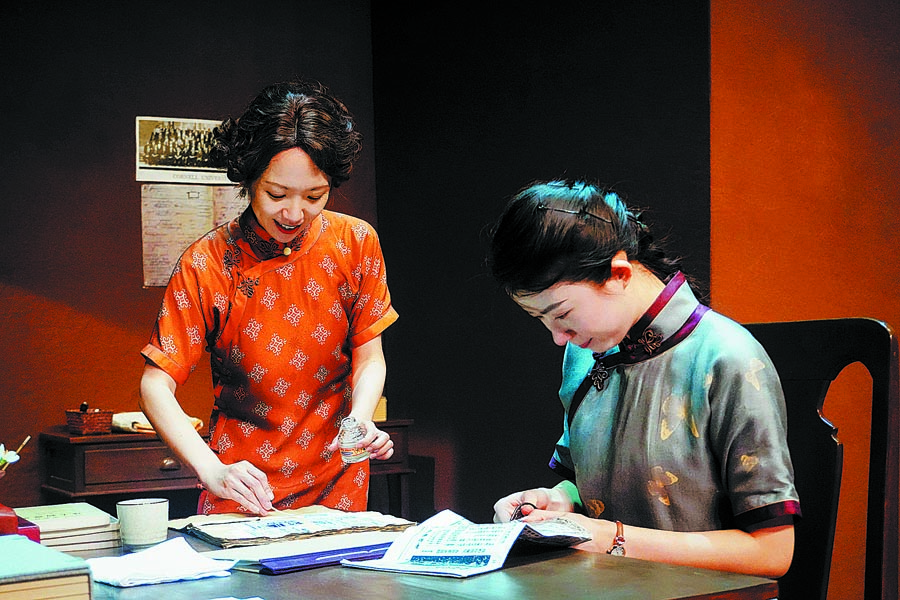

Pioneering Chinese theater directors and companies, she adds, who turned their attention to small theaters, played an important role in contributing to its development in China.
She says the rising market of small-theater productions has also attracted people who work hard on popularizing traditional Chinese art forms. It is a platform to experiment with new technology, explore the psychological portrayal of characters and enhance young people's appreciation of Chinese cultural genres.
Director Bai Ailian's latest work, A Life of Mine, created with the Beijing Quju Opera Troupe, will be staged during the theater festival. The play premiered on Oct 22 and is adapted from the novella of the same title by Lao She (1899-1966), known for his vivid and humorous portrayal of ordinary people, especially the urban poor. A Life of Mine follows the tragic story of a low-ranked police officer.
This is the first time that Quju Opera is turned into a production for small theaters, Bai says.
Believed to be the only local opera form in Beijing, Quju was named by Lao She in 1952. That year, the writer wrote the script The Willow Well for Quju Opera.
"Compared to other traditional Chinese art forms, such as the 600-year-old Kunqu Opera and 200-year-old Peking Opera, Quju is relatively young, which allowed us to give the play a contemporary twist with bold ideas," says Bai, who started working on the play last year. Besides veteran Quju Opera performers, new graduates joined the play.
In the play, Bai used a narrative approach, which is often employed in contemporary plays, to tell the story of the main character. She also used paper-made life-size figures, to symbolize people with low social status, just like the protagonist.
"The actors, especially those who have been performing Quju Opera for years, were excited during the rehearsals. We spent three days talking about the script, and they inspired me with their creative ideas," says Bai.